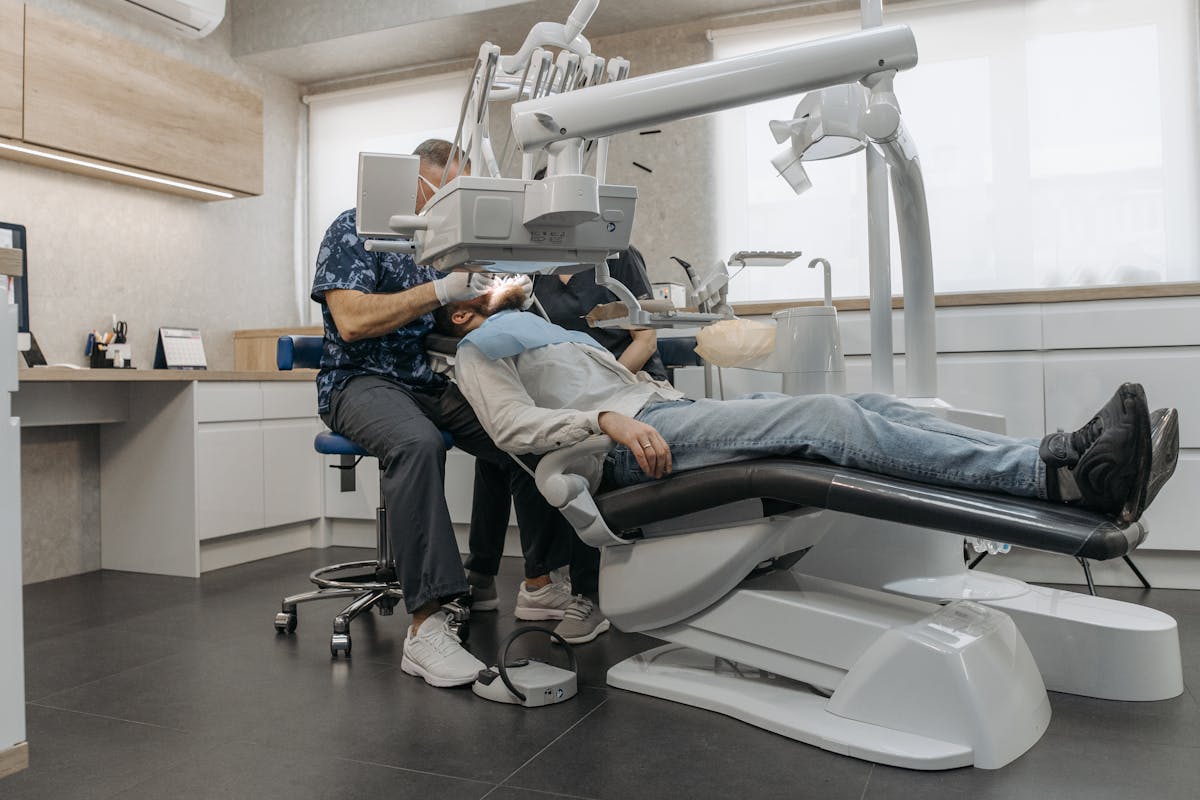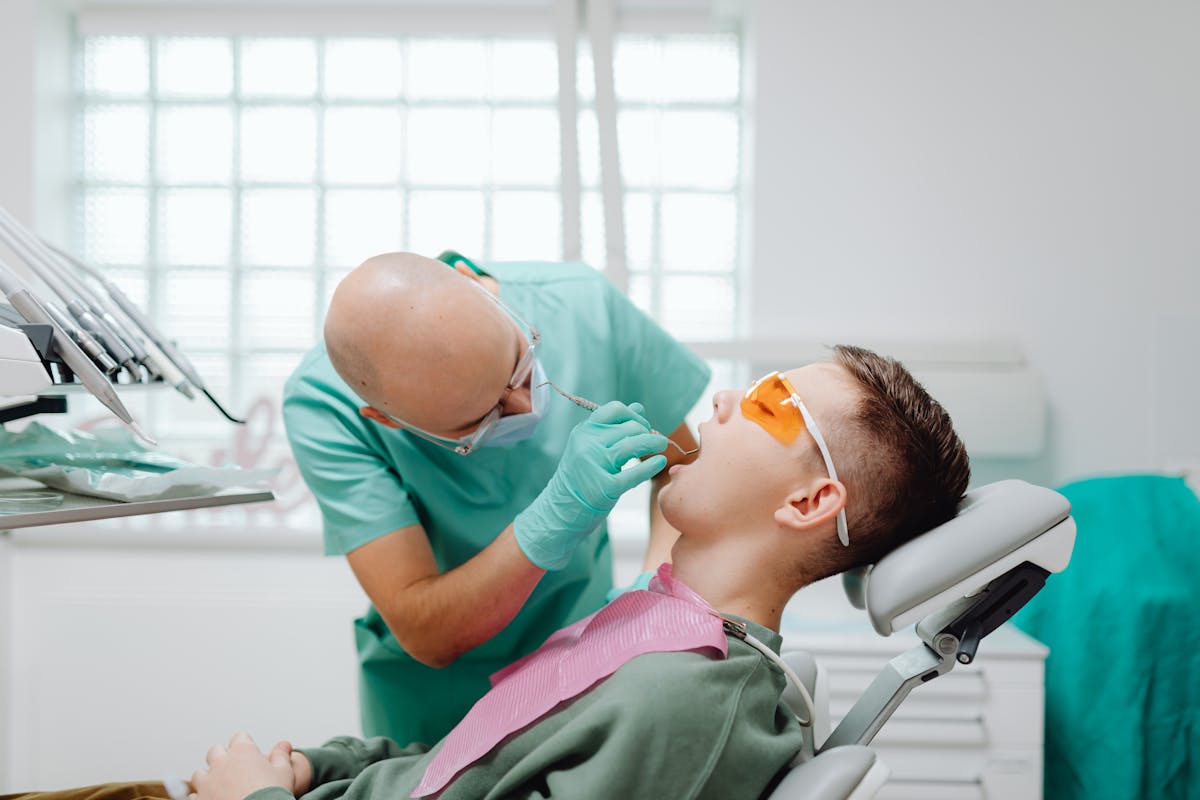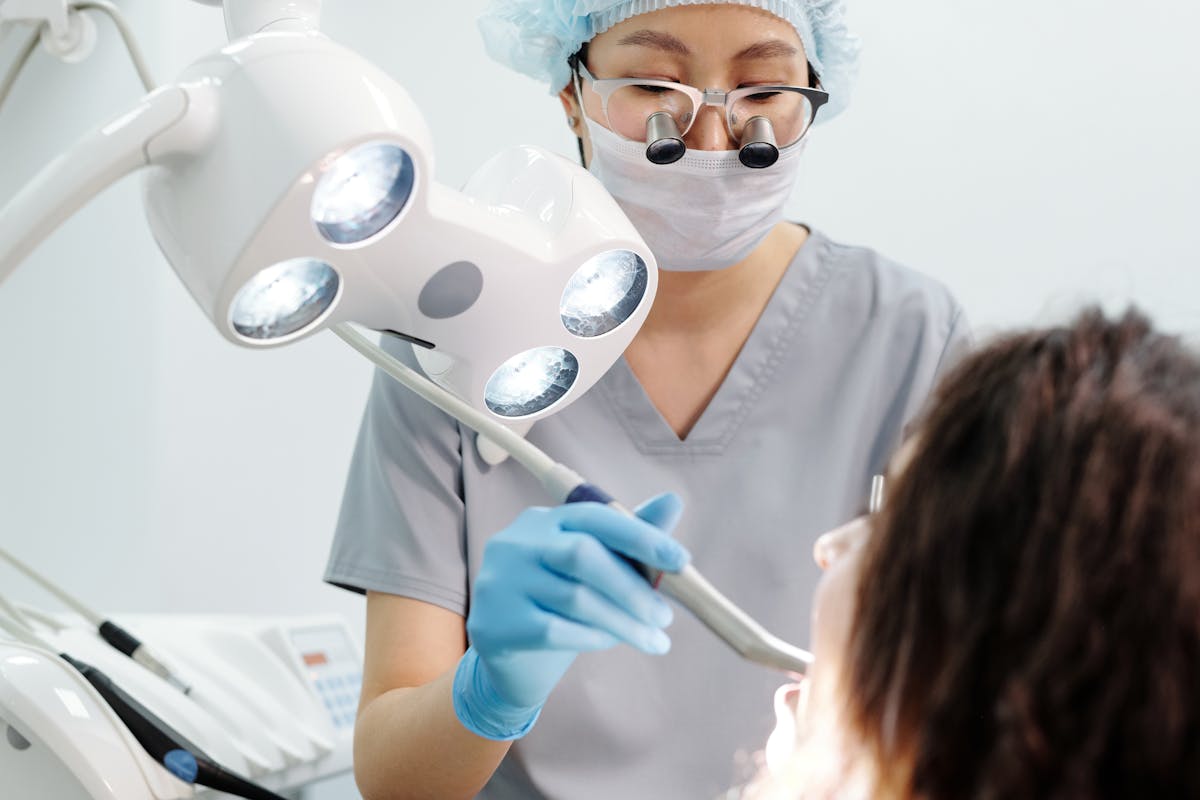Oral Cancer Screening St, Graham, TX

Oral cancer screening in Graham, TX, addresses a pressing public health concern with increasing cases statewide. Early detection through regular dental check-ups is essential, as it allows for the identification of precancerous conditions. Risk factors such as tobacco use and excessive alcohol consumption are prevalent, underscoring the need for awareness. Community outreach initiatives are important in educating residents about symptoms and prevention, empowering them to take charge of their oral health and explore further preventive measures.
The Rising Incidence of Oral Cancer in Texas
Although often overshadowed by other health concerns, the incidence of oral cancer in Texas has been steadily increasing, prompting significant attention from the medical community. This escalation is attributed to various factors, including suboptimal oral hygiene and detrimental lifestyle choices. Poor oral hygiene practices can contribute to the formation of lesions and chronic infections, creating a conducive environment for malignancy. Concurrently, lifestyle choices such as tobacco use, excessive alcohol consumption, and dietary insufficiencies exacerbate the risk profile for oral carcinogenesis. These modifiable risk factors necessitate targeted public health interventions focused on educating patients about preventative measures. Emphasizing the importance of maintaining rigorous oral hygiene and making informed lifestyle choices can potentially mitigate the rising trend of oral cancer in Texas.
Understanding the Importance of Early Detection
How essential is early detection in the battle against oral cancer? Early detection greatly enhances survival rates, emphasizing its critical role in patient outcomes. Recognizing initial symptoms, such as persistent sores, difficulty swallowing, or unexplained bleeding, enables timely intervention, potentially preventing disease progression. Symptom recognition is paramount, as early-stage oral cancer often presents subtle manifestations that can be overlooked without vigilance.
Furthermore, early detection facilitates lifestyle modifications that can mitigate risk factors. Patients identified at risk can be advised on reducing tobacco and alcohol consumption, enhancing their prognosis. This proactive approach allows healthcare providers to tailor patient education and interventions effectively. To sum up, emphasizing early detection through awareness and education is indispensable in reducing oral cancer morbidity and mortality.
The Role of Regular Dental Check-Ups
Regular dental check-ups serve a critical role in the early detection of oral cancer, greatly enhancing patient prognosis by identifying malignancies at a more treatable stage. These appointments also emphasize the importance of preventive care, allowing for the identification and management of risk factors before they advance to more serious conditions. Additionally, professional guidance during these visits provides patients with personalized strategies and insights to maintain ideal oral health and mitigate potential cancer risks.
Early Detection Benefits
Numerous clinical studies underscore the vital importance of early detection in improving the prognosis of oral cancer. Early diagnosis greatly enhances treatment outcomes by facilitating timely intervention. Regular dental check-ups play a pivotal role in early detection, allowing for prompt symptom recognition, such as lesions or unusual growths. Dentists are trained to identify subtle changes in oral tissues that may indicate early stages of cancer, enabling faster referrals to specialists when necessary. In addition, these appointments offer an opportunity for healthcare professionals to discuss lifestyle modifications with patients, such as smoking cessation and alcohol reduction, which are essential in mitigating risk factors. Ultimately, early detection through consistent dental evaluations contributes to more effective management of oral cancer, potentially reducing morbidity and mortality rates.
Preventive Care Importance
Preventive care is fundamental in managing oral health, with regular dental check-ups playing a critical role in this proactive approach. These check-ups serve as an essential component of preventive measures, facilitating early identification of potential oral malignancies. Dental professionals utilize systematic evaluation techniques to detect abnormalities, thereby reducing the risk of progression to advanced stages. The incorporation of health education during these visits empowers patients, promoting informed decisions about oral hygiene practices and lifestyle modifications. By emphasizing the importance of regular examinations, individuals are encouraged to adhere to prescribed schedules, optimizing their overall oral health outcomes. This structured approach not only aids in maintaining dental well-being but also contributes to the early detection of oral cancer, underscoring the significance of preventive care.
Professional Guidance Insights
The proactive management of oral health, as emphasized in preventive care, naturally extends into the domain of professional guidance through regular dental check-ups. These appointments are essential in facilitating early detection of oral cancer, leveraging advanced screening techniques that enhance diagnostic accuracy. Dentists and oral health professionals play a significant role in patient education, equipping individuals with knowledge on symptoms and risk factors associated with oral malignancies. By integrating systematic oral examinations into routine dental visits, practitioners enable timely intervention, potentially mitigating progression. Thorough assessments, including visual inspections and tactile evaluations, are employed to identify anomalies warranting further investigation. Regular dental check-ups serve as a cornerstone in maintaining oral health, underscoring the critical intersection of preventive care and professional expertise.
Key Risk Factors for Oral Cancer
Oral cancer risk factors play an essential role in both diagnosis and prevention strategies. Tobacco use remains the predominant contributor, markedly increasing the likelihood of oral malignancies. Human papillomavirus (HPV) infection has emerged as a critical factor, particularly among younger demographics. Alcohol consumption, often synergistic with tobacco, exacerbates cancer risk. Chronic sun exposure is linked to lip cancers, necessitating protective measures. Age factors indicate higher prevalence in individuals over 40 years, while dietary habits lacking in fruits and vegetables can heighten susceptibility. Gender differences reveal a higher incidence in males, potentially due to lifestyle choices. Chronic irritation from ill-fitting dental appliances or sharp teeth can also contribute to carcinogenesis. Each factor offers distinct challenges for patient-focused preventive care.
How Screenings Are Conducted
Understanding the varied risk factors for oral cancer underscores the importance of meticulous screening procedures. Oral cancer screenings typically begin with visual examination techniques. Clinicians systematically inspect the oral cavity, including the lips, gums, tongue, and throat, to identify any abnormalities such as lesions, discoloration, or asymmetries. Palpation of the neck and jaw areas is performed to detect any unusual masses or lymph node enlargement.
Advancements in diagnostic technologies greatly enhance screening accuracy. Fluorescence visualization devices and toluidine blue staining are employed to highlight suspicious areas that might not be visible to the naked eye. In some instances, adjunctive diagnostic technologies such as brush biopsies may be utilized to collect cellular samples from suspicious lesions, facilitating early detection and enabling further histopathological evaluation if necessary.
Success Stories From Early Detection
Early detection of oral cancer transforms patient outcomes greatly. Numerous patient testimonials highlight the profound impact of timely screening on survival rates. For instance, individuals diagnosed during early stages often participate in survival stories that underscore the significance of proactive examinations. One patient, diagnosed through routine screening, shares that early intervention facilitated targeted treatment, greatly improving prognosis and quality of life. Similarly, another testimonial details the successful eradication of malignant cells, emphasizing the pivotal role of early detection in achieving complete remission. These accounts consistently demonstrate that early identification fosters more effective management, reducing morbidity and mortality. The compelling narratives from patients underscore the critical importance of early oral cancer screening in enhancing both survival likelihood and overall health outcomes.
Community Initiatives Raising Awareness
How can communities effectively combat the prevalence of oral cancer? Implementing community outreach and awareness campaigns is essential. These initiatives are designed to disseminate crucial information regarding oral cancer risks, symptoms, and the importance of early detection. Community outreach programs may include educational workshops, distribution of informational pamphlets, and public service announcements, all aimed at enhancing public knowledge. Awareness campaigns should focus on demographics most at risk, ensuring culturally tailored messaging to maximize impact. By fostering a proactive approach, these initiatives can promote regular oral health check-ups and screenings. Ultimately, such community-driven efforts are instrumental in reducing oral cancer incidence and mortality rates, empowering individuals with the knowledge needed to seek timely professional evaluation and intervention.
The Role of Dentists in Graham, TX
Dentists in Graham, TX, play a pivotal role in the early detection and management of oral cancer through thorough screenings and patient education. Implementing systematic oral examinations, they identify potential malignancies at an early, more treatable stage. Dentists utilize advanced diagnostic tools, such as visual and tactile assessments, to evaluate oral mucosal lesions. Their responsibilities extend beyond direct patient care; they engage in community outreach to raise awareness about oral cancer risks and prevention. By disseminating educational materials and hosting informational sessions, they emphasize the importance of regular dental visits and self-examinations. Through their dedicated efforts, dentists contribute considerably to reducing oral cancer morbidity within the community, underscoring the critical nature of their roles in public health advocacy.
Encouraging Proactive Health Management
Proactive health management is essential in mitigating the risks associated with oral cancer, as early detection greatly enhances treatment outcomes and survival rates. Regular dental checkups serve as a cornerstone for early diagnosis, enabling healthcare providers to identify precancerous lesions or malignant changes at a stage when intervention is most effective. By prioritizing routine screenings, patients can play an active role in safeguarding their oral health and reducing the potential impact of oral cancer.
Benefits of Early Detection
Although often overlooked, early detection of oral cancer greatly enhances treatment outcomes and survival rates. Employing advanced screening techniques allows for the identification of malignancies at a stage when intervention is most effective. Techniques such as visual inspections, fluorescence visualization, and biopsy play an essential role in identifying precancerous lesions. Patient education is paramount in encouraging individuals to participate in routine screenings. By understanding the significance of early detection, patients are more likely to seek regular evaluations, thereby improving their prognosis. Educating patients about the signs and symptoms of oral cancer empowers them to take proactive measures in their health management. Overall, early detection not only improves survival rates but also reduces the complexity and cost of treatment, underscoring its vital importance.
Importance of Regular Checkups
Routine checkups are a critical component of effective oral health management, as they facilitate early identification and intervention of potential issues, including oral cancer. These examinations enable healthcare providers to assess oral hygiene practices and evaluate the impact of lifestyle choices on oral health. Regular dental visits are pivotal in detecting neoplastic changes at an initial stage, enhancing prognosis and treatment efficacy.
An emphasis on thorough screenings allows for the monitoring of mucosal abnormalities and risk factors such as tobacco use and alcohol consumption. By incorporating regular checkups into a patient’s health regimen, dental professionals can provide tailored advice on improving oral hygiene, ultimately reducing the likelihood of malignant transformations. This proactive approach guarantees ideal patient outcomes through early detection and preventative strategies.


We're here to help! Call Us Today!
At Twelve Oaks Dental Care, we provide quality family, general, and cosmetic dentistry in a welcoming environment. Our team focuses on personalized care to help every patient feel comfortable and confident in their smile.
